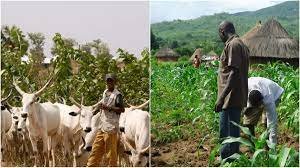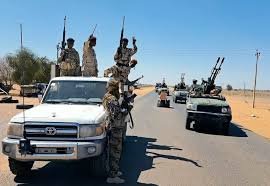The Federal Government has launched a pilot cattle ranch scheme for herders in Yobe State, as part of its efforts to end the persistent crisis between farmers and herders in the country.
The scheme, which is being implemented by the National Agency for the Great Green Wall (NAGGW), aims to provide alternative grazing land, fodder production, and orchard planting for the herders.
Herders in the country have been facing challenges as a result of land scarcity, climate change, and insecurity.
The Director General of NAGGW, Yusuf Bukar, who was represented by the Acting Director of Resource Mobilization and Partnership Building, Safiyanu Yavala, disclosed this at a capacity building and technical training on pilot cattle ranch, fodder farm and orchard planting in Nguru Local Government Area of Yobe State on Tuesday, March 5.
Bukar said the scheme was designed to enhance the livelihoods of the herders and reduce the clashes with farmers, which have resulted in several deaths, displacements, resettlement, and loss of properties, such as livestock.
He said the NAGGW, in collaboration with the Wetland Farmers in Nguru Cooperative Society, was encouraging the communities to join the common purpose of participating in the efforts to combat land degradation and desertification.
Bukar added that the scheme would also contribute to the achievement of the Great Green Wall Initiative, which is a regional programme to restore degraded lands and create a green belt across the Sahel region.
The National President of the Miyetti Allah Cattle Breeders Association of Nigeria (MACBAN), Baba Othman, who also spoke at the event, said cattle ranching, when fully supported with the necessary infrastructure and social amenities, could boost the economy through income generation and value addition.
He noted the bulk of the Nigerian livestock was reared through extensive grazing in marginal lands and grazing reserves, which had been plagued by problems of management, encroachment, degradation, vegetation depletion, and land titles.
He called for fresh strategies and synergy to arrest the situation from getting worse and to achieve sustainable cattle ranching.
“The government must improve the productivity and efficiency of the cattle production system, invest in veterinary services and animal disease surveillance, support the development of the livestock value chain, and promote the integration of livestock with crop and forestry systems,” Bukar said.
The Chairman of the Nguru Wetland Farmers’ Cooperative Association, Abba Liman, in his keynote address, revealed that the scarcity of land for grazing, the increase in population, and other factors had gradually fuelled the conflict between the farmers and the herders, urging the federal government for more support.
He said the pilot cattle ranch scheme was a welcome development and a win-win situation for both the farmers and the herders, as it would create harmony, peace, and prosperity in the area.
The training, which will last for three days, will feature practical experience in livestock breeding management, demonstration of climate-smart agricultural practices, and orchard plantation using the half-moon planting method.























